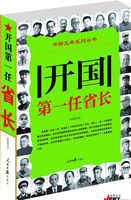THE BREAKING POINT
1
And then we broke down.We broke our faith with both Margaret and Shoesmith, flung career and duty out of our lives, and went away together.
It is only now, almost a year after these events, that I can begin to see what happened to me.At the time it seemed to me I was a rational, responsible creature, but indeed I had not parted from her two days before I became a monomaniac to whom nothing could matter but Isabel.Every truth had to be squared to that obsession, every duty.It astounds me to think how I forgot Margaret, forgot my work, forgot everything but that we two were parted.I still believe that with better chances we might have escaped the consequences of the emotional storm that presently seized us both.
But we had no foresight of that, and no preparation for it, and our circumstances betrayed us.It was partly Shoesmith's unwisdom in delaying his marriage until after the end of the session--partly my own amazing folly in returning within four days to Westminster.But we were all of us intent upon the defeat of scandal and the complete restoration of appearances.It seemed necessary that Shoesmith's marriage should not seem to be hurried, still more necessary that Ishould not vanish inexplicably.I had to be visible with Margaret in London just as much as possible; we went to restaurants, we visited the theatre; we could even contemplate the possibility of my presence at the wedding.For that, however, we had schemed a weekend visit to Wales, and a fictitious sprained ankle at the last moment which would justify my absence....
I cannot convey to you the intolerable wretchedness and rebellion of my separation from Isabel.It seemed that in the past two years all my thoughts had spun commisures to Isabel's brain and I could think of nothing that did not lead me surely to the need of the one intimate I had found in the world.I came back to the House and the office and my home, I filled all my days with appointments and duty, and it did not save me in the least from a lonely emptiness such as I had never felt before in all my life.I had little sleep.In the daytime I did a hundred things, I even spoke in the House on two occasions, and by my own low standards spoke well, and it seemed to me that I was going about in my own brain like a hushed survivor in a house whose owner lies dead upstairs.
I came to a crisis after that wild dinner of Tarvrille's.Something in that stripped my soul bare.
It was an occasion made absurd and strange by the odd accident that the house caught fire upstairs while we were dining below.It was a men's dinner--" A dinner of all sorts," said Tarvrille, when he invited me; "everything from Evesham and Gane to Wilkins the author, and Heaven knows what will happen!" I remember that afterwards Tarvrille was accused of having planned the fire to make his dinner a marvel and a memory.It was indeed a wonderful occasion, and Isuppose if I had not been altogether drenched in misery, I should have found the same wild amusement in it that glowed in all the others.There were one or two university dons, Lord George Fester, the racing man, Panmure, the artist, two or three big City men, Weston Massinghay and another prominent Liberal whose name I can't remember, the three men Tarvrille had promised and Esmeer, Lord Wrassleton, Waulsort, the member for Monckton, Neal and several others.We began a little coldly, with duologues, but the conversation was already becoming general--so far as such a long table permitted--when the fire asserted itself.
It asserted itself first as a penetrating and emphatic smell of burning rubber,--it was caused by the fusing of an electric wire.
The reek forced its way into the discussion of the Pekin massacres that had sprung up between Evesham, Waulsort, and the others at the end of the table."Something burning," said the man next to me.
"Something must be burning," said Panmure.
Tarvrille hated undignified interruptions.He had a particularly imperturbable butler with a cadaverous sad face and an eye of rigid disapproval.He spoke to this individual over his shoulder."Just see, will you," he said, and caught up the pause in the talk to his left.
Wilkins was asking questions, and I, too, was curious.The story of the siege of the Legations in China in the year 1900 and all that followed upon that, is just one of those disturbing interludes in history that refuse to join on to that general scheme of protestation by which civilisation is maintained.It is a break in the general flow of experience as disconcerting to statecraft as the robbery of my knife and the scuffle that followed it had been to me when I was a boy at Penge.It is like a tear in a curtain revealing quite unexpected backgrounds.I had never given the business a thought for years; now this talk brought back a string of pictures to my mind; how the reliefs arrived and the plundering began, how section after section of the International Army was drawn into murder and pillage, how the infection spread upward until the wives of Ministers were busy looting, and the very sentinels stripped and crawled like snakes into the Palace they were set to guard.It did not stop at robbery, men were murdered, women, being plundered, were outraged, children were butchered, strong men had found themselves with arms in a lawless, defenceless city, and this had followed.
Now it was all recalled.
"Respectable ladies addicted to district visiting at home were as bad as any one," said Panmure."Glazebrook told me of one--flushed like a woman at a bargain sale, he said--and when he pointed out to her that the silk she'd got was bloodstained, she just said, 'Oh, bother!' and threw it aside and went back...."We became aware that Tarvrille's butler had returned.We tried not to seem to listen.
"Beg pardon, m'lord," he said."The house IS on fire, m'lord.""Upstairs, m'lord."
"Just overhead, m'lord."
"The maids are throwing water, m'lord, and I've telephoned FIRE.""No, m'lord, no immediate danger."















